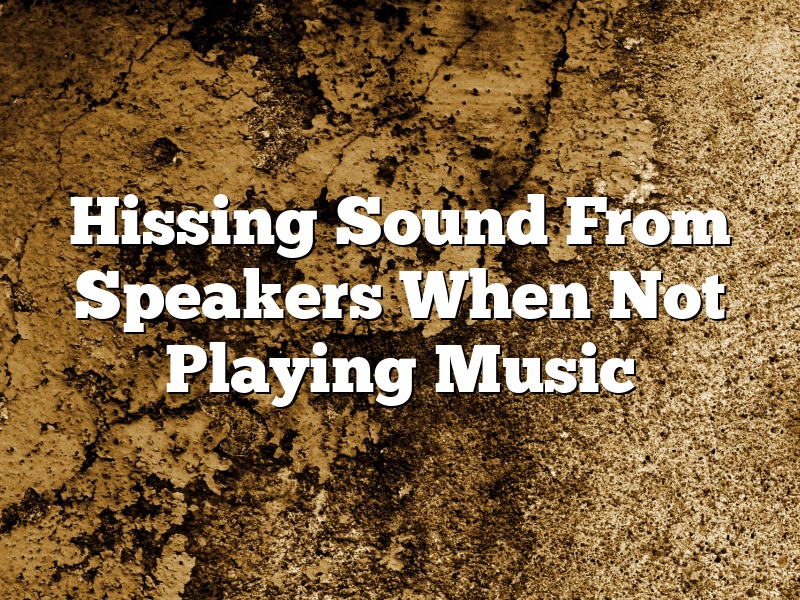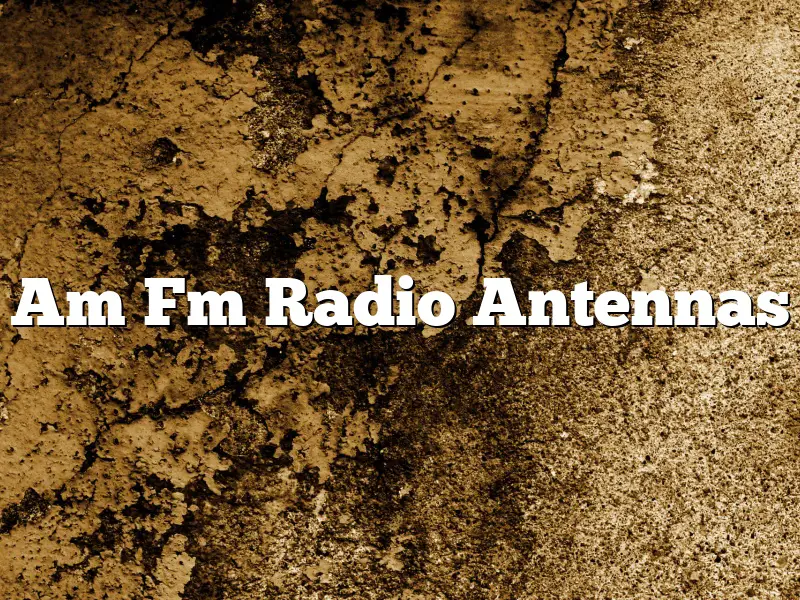Do you ever notice a hissing sound coming from your speakers when there is no music playing? This is a common issue that many people experience, but most don’t know how to fix it.
The hissing sound is caused by an audio feedback loop. This happens when the sound from the speakers is picked up by the microphone and then sent back to the speakers, creating a loud, continuous hissing noise.
The following are some tips on how to fix audio feedback:
-Make sure that the volume on your speakers is turned down all the way.
-Move any objects that are near the speakers and could be causing the audio feedback, such as plants, lamps, or other furniture.
-Check to see if the microphone is muted.
-If you are using a laptop, try moving the laptop away from the speakers.
-If you are using an external microphone, make sure it is not too close to the speakers.
-If you are using an audio mixer, make sure that the mixer is not too close to the speakers.
-Try turning off any electronic devices that are near the speakers, such as cell phones, microwaves, or laptops.
-If all else fails, try disconnecting the speakers from the computer and plugging them back in.
Contents
How do I stop my speakers from hissing?
If you’re experiencing noise or distortion from your speakers, one common cause is speaker hissing. This can be caused by a number of factors, from incorrect settings to a fault in the speaker itself. Thankfully, there are a few ways to troubleshoot and fix the issue.
The first step is to identify the source of the hissing. This can be done by turning off all other devices in your home and turning up the volume on your speakers. If the hissing persists, the issue is with the speaker. If the noise goes away, the problem is with another device.
Once you’ve identified the source of the problem, there are a few things you can do to fix it. If the hissing is caused by incorrect settings, you can adjust them to fix the issue. If the speaker is at fault, you may need to replace it.
If you’re experiencing speaker hissing, the first step is to identify the source of the problem. Once you’ve identified the source, there are a few things you can do to fix it. If the hissing is caused by incorrect settings, you can adjust them to fix the issue. If the speaker is at fault, you may need to replace it.
What causes hissing sound in speakers?
What causes hissing sound in speakers?
There are many things that can cause a hissing sound in speakers. One of the most common causes is a problem with the speaker’s wiring. If there is a break in the wiring, it can create a hissing noise. Another common cause is a problem with the speaker’s amplifier. If the amplifier is not working properly, it can create a hissing noise.
Other causes of a hissing sound in speakers include problems with the speaker’s cone or diaphragm, problems with the speaker’s crossover network, and problems with the speaker’s magnets. In some cases, the hissing sound may be caused by interference from other electronic devices.
If you are having problems with a hissing sound in your speakers, the best thing to do is to take the speakers to a professional to have them inspected.
Why do my speakers buzz when nothing is playing?
There are a few reasons why your speakers might buzz when nothing is playing. One possibility is that there is something wrong with the speaker itself. Some common problems that can cause a speaker to buzz are a loose or broken connection, a blown speaker, or a problem with the amplifier.
Another possibility is that there is something wrong with the wiring in your house. If there is a short in the wiring, it could cause the speakers to buzz. You can test this by unplugging everything in your house except the speakers and see if they still buzz. If they don’t, then the problem is most likely with the wiring.
Finally, it’s also possible that there is something wrong with the audio source. If the audio is being distorted in some way, it could cause the speakers to buzz. To test this, try playing audio from a different source, like a different song on your phone or a different video on YouTube. If the speakers still buzz, then the problem is probably with the audio source.
Is it normal for speakers to hiss?
Speakers, in general, produce sound by vibrating a diaphragm, which causes air to flow over a small opening, called a port. This air flow creates a pressure difference between the inside and outside of the speaker, which causes the diaphragm to vibrate. The vibration of the diaphragm causes the air to flow over the port faster, which in turn creates a higher pressure inside the speaker. This pressure difference causes the diaphragm to vibrate even more, which in turn causes the air to flow over the port even faster, and so on.
When a speaker is producing a hissing sound, what you are actually hearing is the sound of the air flowing over the port. This sound is usually produced when the speaker is under a lot of pressure, either because the audio signal is too loud or because the speaker is being driven by a amplifier that is too powerful.
There is no right or wrong answer to the question of whether or not it is normal for speakers to hiss. Some people find the sound of a speaker hissing to be distracting or annoying, while others don’t mind it. Ultimately, it is up to the individual listener to decide whether or not the sound of a speaker hissing is something that they find pleasing or not.
Do passive speakers hiss?
Passive speakers don’t always produce a hissing sound, but it is a common issue with them. In general, the sound is caused by an air leak in the speaker. This can be the result of a manufacturing defect or damage to the speaker.
The most common place for the air leak is around the connection between the speaker and the enclosure. If the seal is not tight, air will escape and produce a hissing sound. You can often fix the issue by applying sealant or other adhesive around the connection.
Another common cause of the hissing sound is a loose or damaged speaker wire. If the wire is not making good contact with the speaker, it can cause a noise that sounds like a hissing air leak. You can try tightening the connection or replacing the wire if it is damaged.
Any of these issues can cause a hissing noise from a passive speaker. If you’re having trouble identifying the source of the noise, you can try contacting the manufacturer or a professional audio technician. They can help you troubleshoot the issue and fix it if necessary.
How do I get rid of static sound in my speakers?
Static is a common issue that can occur with both speakers and headphones. It is often caused by interference from other electronic devices, such as cell phones or microwaves. In some cases, it can also be the result of a problem with the speakers or headphones themselves.
There are a few things that you can do to try to get rid of static sound in your speakers. First, try moving the speakers away from other electronic devices. If that does not work, try turning off or unplugging any devices that may be causing interference. You can also try adjusting the position of the speakers or headphones.
If none of these solutions work, there may be a problem with the speakers or headphones themselves. In this case, you may need to replace them.
What does blown speaker sound like?
A blown speaker is a speaker that has stopped working due to a blown driver. This can happen for a number of reasons, but the most common is when the speaker is overdriven and the driver can no longer handle the power. When a speaker is blown, it will usually produce a loud, distorted noise.
The sound of a blown speaker can vary depending on the type of speaker it is. A tweeters is a type of speaker that is used to create high-pitched sounds. When a tweeter is blown, it will usually produce a high-pitched squeal or screech. A woofer is a type of speaker that is used to create low-pitched sounds. When a woofer is blown, it will usually produce a deep, bass-like sound.
If you are experiencing a blown speaker, the best thing to do is to replace the speaker. If you are unable to do this yourself, you can take the speaker to a local audio shop and have them replace it for you.





